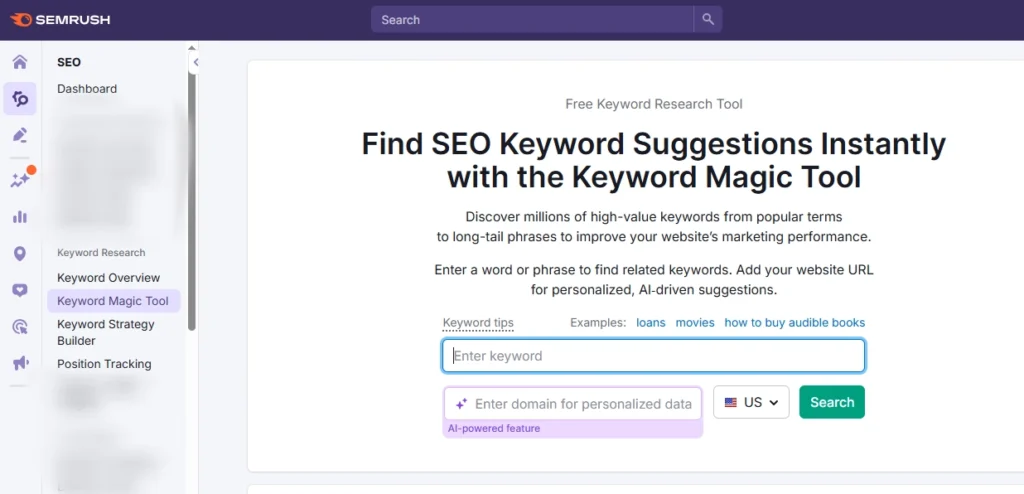How to Do Keyword Analysis in SEO: A Complete Guide
If you want your website to rank higher on Google, understanding how to do keyword analysis in SEO is the first step. Keyword analysis helps you identify the exact terms your target audience uses to find products, services, or information online. Once you master this, every piece of content you create will have a purpose—to attract, engage, and convert the right audience.
What Is Keyword Research in SEO?
Keyword research in SEO is the process of discovering and analyzing the words or phrases people type into search engines. The goal is to find the best keywords that match your business goals and search intent. The concept ties directly into broader SEO principles like site relevance and content planning — learn more about these fundamentals in our post on What is SEO.
In short, it’s not just about finding popular keywords. It’s about identifying the right keywords that balance search volume, competition, and user intent.

Why Keyword Analysis Matters
Effective keyword analysis gives your SEO strategy direction. Here’s why it matters:
- Reveals audience intent – Understand what people are really searching for.
- Guides content creation – Helps you focus on topics that bring traffic.
- Improves visibility – Targets keywords that boost ranking potential.
- Enhances conversions – Drives the right users to your website.
How to Do Keyword Analysis in SEO: Step-by-Step Process
Learning how to search keywords for SEO doesn’t have to be complicated. Here’s a simple approach anyone can follow:
1. Identify Your Goals
Start by asking: What do you want to achieve? More traffic? Leads? Sales? Clear goals make your keyword selection precise and meaningful.
2. Brainstorm Seed Keywords
Seed keywords are basic terms that describe your niche. For example, if you run a laptop rental business, your seed keywords might be laptop rentals, laptops for rent, or rental laptops near me.
3. Use Keyword Research Tools
Leverage tools like:
- Google Keyword Planner
- Ahrefs Keyword Explorer
- SEMrush
- Ubersuggest

If you want a curated list of tools and how to use them for keyword discovery, check our guide to the Best SEO Tools. These tools show search volume, competition, and related keywords to help refine your list.
4. Analyze Search Intent
Understand why users search for a keyword:
- Informational intent – They want answers or knowledge.
- Navigational intent – They’re looking for a specific website.
- Transactional intent – They’re ready to buy.
- Commercial intent – They’re comparing options before buying.
Matching your content with the correct intent ensures better engagement and rankings. Make sure your keyword choices also align with on-page optimization practices — like clear headings and intent-matching content.
5. Check Keyword Metrics
Look for:
- Search volume – How many people search that term monthly.
- Competition level – How hard it is to rank.
- CPC (Cost Per Click) – Helpful if you run ads.
- Trends – See if interest is growing or declining.
6. Group and Prioritize Keywords
Categorize your keywords into topics or clusters. Focus on high-intent, moderate-competition keywords first. This gives faster ranking results and better conversions.
How Many Types of Keywords in SEO?
There are several types of keywords you should know about:
- Short-tail keywords – 1-2 words (e.g., SEO tools, digital marketing). High volume but high competition.
- Long-tail keywords – 3+ words (e.g., best SEO tools for small businesses, how to optimize website speed). Lower volume but higher conversion rates.
- LSI keywords – Related terms that add context to your content (e.g., search engine optimization, keyword strategy, content ranking factors).
- Transactional keywords – Indicate buying intent (e.g., buy SEO course, hire SEO expert, rent laptop online).
- Navigational keywords – Used to find a specific brand or site (e.g., Moz SEO blog, Google Keyword Planner, Ahrefs pricing).
For more examples and strategy tips, visit the types of keywords explained by Ahrefs. Using a mix of these helps balance visibility, engagement, and conversions.
Common Mistakes to Avoid in Keyword Analysis
- Targeting overly competitive keywords too soon.
- Ignoring search intent.
- Keyword stuffing (hurts rankings and readability).
- Failing to track keyword performance.
- Skipping long-tail keywords that could bring high-quality leads.
Pro Tips for Better Keyword Research
- Use Google Autocomplete and People Also Ask for new ideas.
- Spy on your competitors’ top pages using SEO tools.
- Regularly update your keyword list based on trends.
- Always write for humans first, then optimize for search engines.
Frequently Asked Questions (FAQs)
What is keyword analysis in SEO?
Keyword analysis in SEO is the process of finding, evaluating, and selecting the right keywords to target in your content. It helps you understand what your audience is searching for and how to attract them to your website.
How do I find keywords for SEO?
Start with brainstorming seed keywords related to your niche, then use tools like Google Keyword Planner, Ahrefs, or SEMrush to identify search volume, competition, and related phrases.
How often should I update my keyword strategy?
It’s best to revisit your keyword strategy every 3–6 months to adapt to search trends, competition, and audience behavior.
What are the most common types of keywords in SEO?
Short-tail, long-tail, LSI, transactional, and navigational keywords are the main types. Each plays a unique role in improving visibility and conversions.
Why is keyword research important for SEO success?
Keyword research ensures your content matches user intent, helping your site rank higher, attract relevant traffic, and achieve better engagement and conversions.
Conclusion: Ready to Find the Right Keywords?
Learning how to do keyword analysis in SEO is one of the smartest investments you can make for your website. Once you understand your audience’s search intent and pick the right keywords, every blog post, landing page, and campaign becomes more effective.
If you’re unsure where to start or need expert guidance to find profitable keywords for your business, reach out to the Digirank SEO specialists today. We’ll help you identify the best opportunities and build a keyword strategy that drives real growth for your brand.







